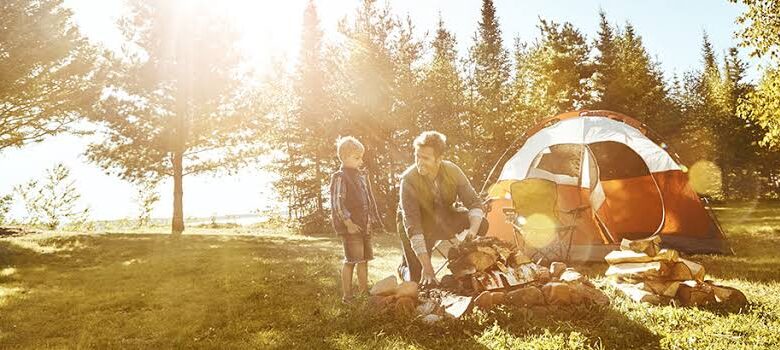How to have a safe camping trip – Here are some tips to follow

Did you know that more deaths on average occur camping than almost any other outdoor activity? This is because there are many dangers out in the wilderness. Generally, these dangers cannot be instantly removed by equipment but require constant vigilance and preparation to stay safe.
The most common causes of death while camping include dehydration, hyperthermia (heatstroke), drowning, wild animal attacks, heart attacks, stroke, hypothermia, and falling. Use tarp tents as they last long.
Bacterial Infection
Camping comes with various challenges yet it offers great adventure. All you have to do is to be prepare for everything. Above mentioned are the things you need to keep in mind but bacterial infection is something you need to be aware of. Camping on various places can attract harmful bacteria to your body and expose you to harmful bacterial infection. Hence, it’s always a great idea to bring medicines, lotions etc. for this. Make sure you are using an antibacterial towel during the camping as it will keep you safe from harmful bacteria. Towels like Mizu towels are the best antibacterial travel towels available in the world that are perfectly designed for this purpose. Mizu Towel come with self cleaning silver fiber that changes color when the dirt builds up and eliminates 99.9% of bacterial growth. Mizu is perfect the perfect travel towel to keep you and your loved ones safe.
Beware of dehydration
Dehydration and heat stroke often go hand-in-hand because people cannot regulate their body temperature when they get dehydrated. When you sweat, your body sweats out water and salt, so if you don’t replenish the water quickly enough through drinking, you will become extremely fatigued and exhausted. If you ignore this early on, heatstroke can set where your body’s normal temperature control system malfunctions. This often occurs when the humidity levels are high, so it is best to avoid camping in these conditions, or if you plan to stay out in the humidity for a long time, ensure that you bring enough water with you.
Drowning
Drowning is one of the most common ways people die while camping because national parks all over the country have large bodies of water readily available for recreation. However, many swimmers underestimate their swimming ability or overestimate how strong they can swim in choppy waters. It is crucial to choose your location for swimming wisely and ensure that you know how strong a swimmer you are and what the water conditions around your location will be.
Animal Attacks
There have been many cases of animal attacks in campgrounds through the years. The wild animals in a national park tend to stay away from people because they don’t want to hunt or look for food when there is plenty of easier-to-get-at prey like mice and squirrels out on the ground. However, if an animal feels threatened by you (either because it’s young were threatened or you stepped on one of its babies), it can feel like it is cornered and attacked, hazardous if it is larger than your size. Avoid this, try not wandering off too far from the camp, and if you happen to notice a wild animal coming towards you, make as much noise as you can and try to intimidate it by acting like the bigger and meaner animal.
Heart disease is one of the leading causes of death in America today, which is common while camping. This typically occurs when people do not bring enough supplies with them or stay hydrated while hiking. It also typically occurs when people get too hot while hiking or working out, but they feel fine because they are used to their body temperature at home. However, since the weather doesn’t agree with these system, hidden problems can arise quickly on your trip, so it is vital to know your heart rate, pulse, and breathing while exercising.
Hypothermia
Hypothermia occurs when the body falls below a certain temperature – usually around 95 degrees Fahrenheit. This generally occurs after getting wet or spending too much time in the cold, so it is important to check the weather before going out into nature to avoid this problem. You should also have plenty of dry clothes that are ready to wear whenever you get wet.
Suppose you do feel yourself starting to become hypothermic. In that case, there are some things you can do to aid in warming up your body- if possible, eat something warm like soup because it will help generate heat; exercise vigorously (but not excessively) until you start sweating again; go by a fire or source of warmth for about fifteen minutes.



